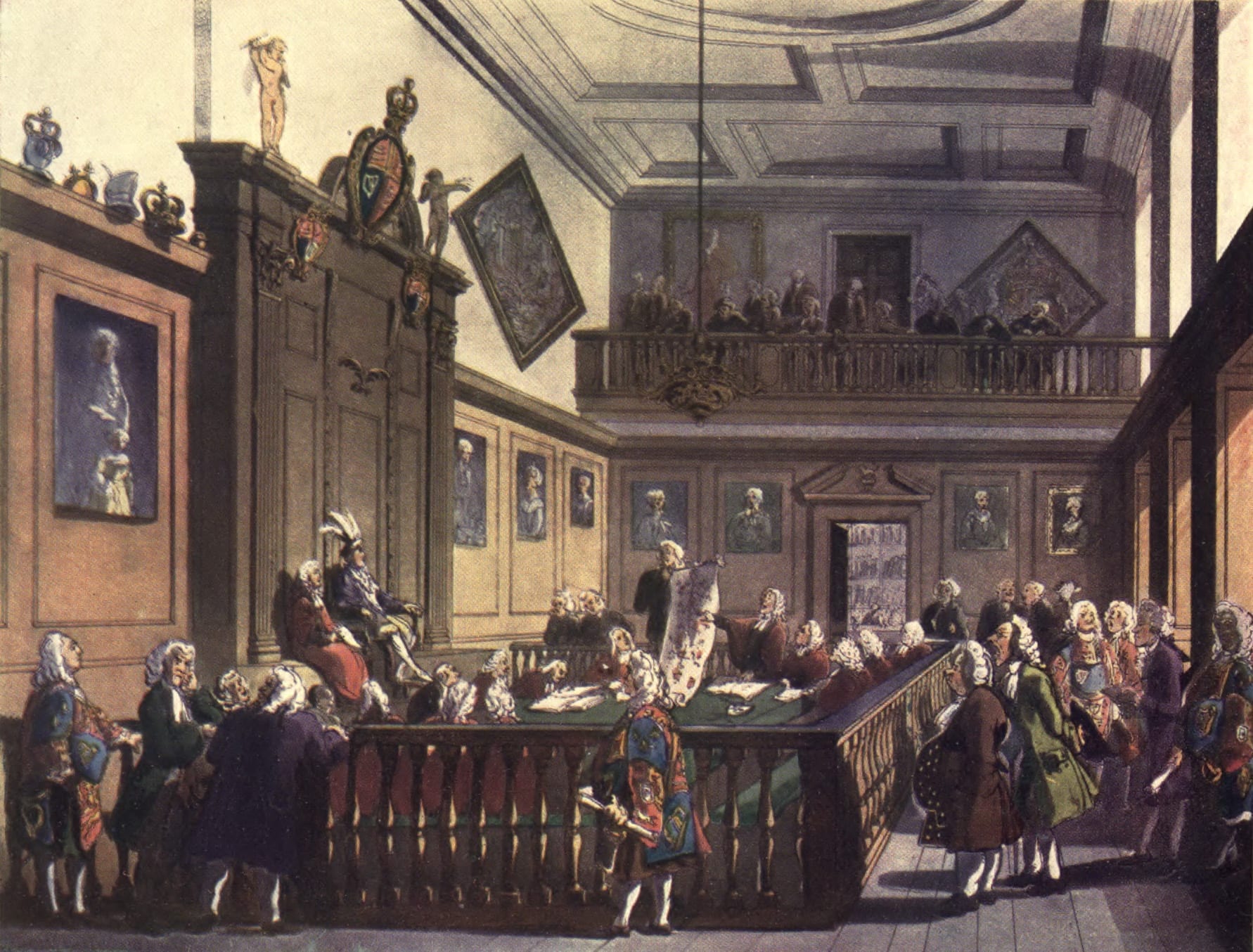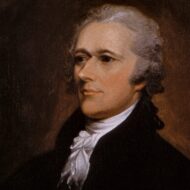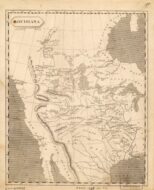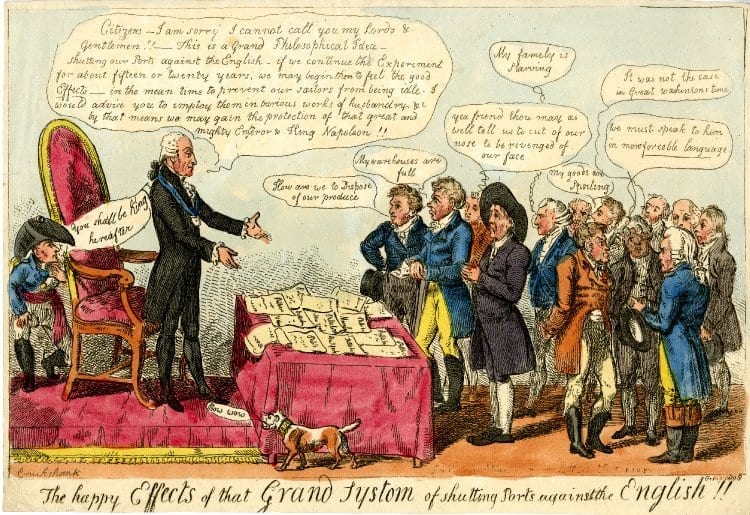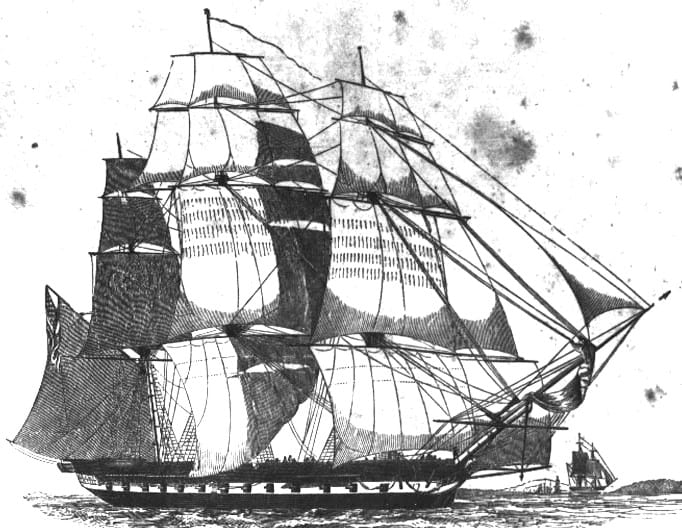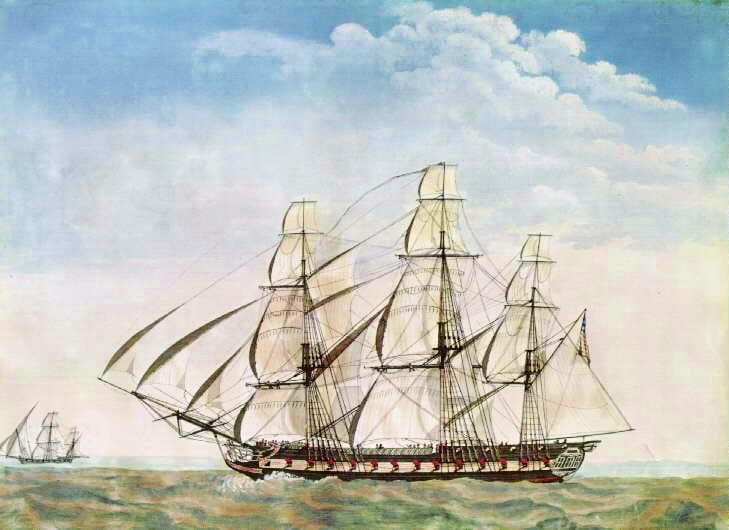


No related resources
Introduction
Despite their partnership in writing The Federalist Papers, James Madison and Alexander Hamilton adopted opposing positions regarding the role that each branch would play in the federal government. These differences led them to debate each other over the legitimacy of President George Washington’s “Proclamation of Neutrality’” in the war between Britain and France. In these documents, Madison (writing as “Helvidius”) challenges Hamilton’s interpretation of executive power advanced in his “Pacificus” essays (See Pacificus No. 1). Madison especially disputes the notion that the powers of war and peace are executive in nature, rather than legislative, raising an issue that was discussed at the Constitutional Convention (See Debates on the Legislative Branch). He also notes the propensity of executives to war, since war increases the power of the executive branch.
Source: “Helvidius No. 1,” “Helvidius No. 2,” and Helvidius No. 4,” in The Pacificus-Helvidius Debates, ed. Morton J. Frisch (Indianapolis: Liberty Fund, Inc., 2007), pp. 55–64, 65–73, 84–89.
Helvidius No. 1 | August 24, 1793
Several pieces with the signature of Pacificus were lately published, which have been read with singular pleasure and applause, by the foreigners and degenerate citizens among us, who hate our republican government, and the French revolution; whilst the publication seems to have been too little regarded, or too much despised by the steady friends to both. . . .
The substance of the first piece, sifted from its inconsistencies and its vague expressions, may be thrown into the following propositions:
That the powers of declaring war and making treaties are, in their nature, executive powers:
That being particularly vested by the constitution in other departments, they are to be considered as exceptions out of the general grant to the executive department:
That being, as exceptions, to be construed strictly, the powers not strictly within them, remain with the executive:
That the executive consequently, as the organ of intercourse with foreign nations, and the interpreter and executor of treaties . . . , and the law of nations, is authorized, to expound all articles of treaties, those involving questions of war and peace, as well as others . . . ; to judge of the obligations of the United States to make war or not, under any casus federis or eventual operation of the contract, relating to war; and, to pronounce the state of things resulting from the obligations of the United States, as understood by the executive:
That in particular the executive had authority to judge whether in the case of the mutual guaranty between the United States and France, the former were bound by it to engage in the war:
That the executive has, in pursuance of that authority, decided that the United States are not bound: And,
That its proclamation of the 22d of April last, is to be taken as the effect and expression of that decision.
The basis of the reasoning is, we perceive, the extraordinary doctrine, that the powers of making war and treaties, are in their nature executive; and therefore comprehended in the general grant of executive power, where not specially and strictly excepted out of the grant. . . .
If we consult for a moment, the nature and operation of the two powers to declare war and make treaties, it will be impossible not to see that they can never fall within a proper definition of executive powers. The natural province of the executive magistrate is to execute laws, as that of the legislature is to make laws. All his acts therefore, properly executive, must presuppose the existence of the laws to be executed. A treaty is not an execution of laws: it does not pre-suppose the existence of laws. It is, on the contrary, to have itself the force of a law, and to be carried into execution, like all other laws, by the executive magistrate. To say then that the power of making treaties which are confessedly laws, belongs naturally to the department which is to execute laws, is to say, that the executive department naturally includes a legislative power. In theory, this is an absurdity—in practice a tyranny.
The power to declare war is subject to similar reasoning. A declaration that there shall be war, is not an execution of laws: it does not suppose preexisting laws to be executed: it is not in any respect, an act merely executive. It is, on the contrary, one of the most deliberative acts that can be performed; and when performed, has the effect of repealing all the laws operating in a state of peace, so far as they are inconsistent with a state of war: and of enacting as a rule for the executive, a new code adapted to the relation between the society and its foreign enemy. In like manner a conclusion of peace annuls all the laws peculiar to a state of war, and revives the general laws incident to a state of peace.
These remarks will be strengthened by adding that treaties, particularly treaties of peace, have sometimes the effect of changing not only the external laws of the society, but operate also on the internal code, which is purely municipal, and to which the legislative authority of the country is of itself competent and complete.
From this view of the subject it must be evident, that although the executive may be a convenient organ of preliminary communications with foreign governments, on the subjects of treaty or war; and the proper agent for carrying into execution the final determinations of the competent authority; yet it can have no pretensions from the nature of the powers in question compared with the nature of the executive trust, to that essential agency which gives validity to such determinations. . . .
It remains to be enquired whether there be any thing in the constitution itself which shows that the powers of making war and peace are considered as of an executive nature, and as comprehended within a general grant of executive power. . . .
It will not be pretended that this appears from any direct position to be found in the instrument.
If it were deducible from any particular expressions it may be presumed that the publication would have saved us the trouble of the research.
Does the doctrine then result from the actual distribution of powers among the several branches of the government? Or from any fair analogy between the powers of war and treaty and the enumerated powers vested in the executive alone?
Let us examine.
In the general distribution of powers, we find that of declaring war expressly vested in the Congress, where every other legislative power is declared to be vested, and without any other qualification than what is common to every other legislative act. The constitutional idea of this power would seem then clearly to be, that it is of a legislative and not an executive nature. . . .
This conclusion becomes irresistible, when it is recollected, that the constitution cannot be supposed to have placed either any power legislative in its nature, entirely among executive powers, or any power executive in its nature, entirely among legislative powers, without charging the constitution, with that kind of intermixture and consolidation of different powers, which would violate a fundamental principle in the organization of free governments. If it were not unnecessary to enlarge on this topic here, it could be shewn, that the constitution was originally vindicated, and has been constantly expounded, with a disavowal of any such intermixture.
The power of treaties is vested jointly in the president and in the Senate, which is a branch of the legislature. From this arrangement merely, there can be no inference that would necessarily exclude the power from the executive class: since the senate is joined with the president in another power, that of appointing to offices, which as far as relate to executive offices at least, is considered as of an executive nature. Yet on the other hand, there are sufficient indications that the power of treaties is regarded by the constitution as materially different from mere executive power, and as having more affinity to the legislative than to the executive character. . . .
One circumstance indicating this, is the constitutional regulation under which the senate give their consent in the case of treaties. In all other cases the consent of the body is expressed by a majority of voices. In this particular case, a concurrence of two thirds at least is made necessary, as a substitute or compensation for the other branch of the legislature, which on certain occasions, could not be conveniently a party to the transaction.
But the conclusive circumstance is, that treaties when formed according to the constitutional mode, are confessedly to have the force and operation of laws, and are to be a rule for the courts in controversies between man and man, as much as any other laws. They are even emphatically declared by the constitution to be “the supreme law of the land.” . . .
Helvidius No. 2 | August 31, 1793
. . . “However true it may be (says [Pacificus]) that the right of the legislature to declare war includes the right of judging whether the legislature be under obligations to make war or not, it will not follow that the executive is in any case excluded from a similar right of judging in the execution of its own functions.”
. . . He had before admitted that the right to declare war is vested in the legislature. He here admits that the right to declare war includes the right to judge whether the United States be obliged to declare war or not. Can the inference be avoided, that the executive instead of having a similar right to judge, is as much excluded from the right to judge as from the right to declare?
If the right to declare war be an exception out of the general grant to the executive power; everything included in the right must be included in the exception; and being included in the exception, is excluded from the grant.
. . . There can be no refuge against this conclusion, but in the pretext of a concurrent right in both departments to judge of the obligations to declare war, and this must be intended by the writer when he says, “it will not follow that the executive is excluded in any case from a similar right of judging &c.”
. . . The power to judge of the causes of war as involved in the power to declare war, is expressly vested where all other legislative powers are vested, that is, in the Congress of the United States. It is consequently determined by the constitution to be a Legislative power. Now . . . the same power, cannot belong in the whole, to both departments, or be properly so vested as to operate separately in each. Still more evident is it, that the same specific function or act, cannot possibly belong to the two departments and be separately exercisable by each.
Legislative power may be concurrently vested in different legislative bodies. Executive powers may be concurrently vested in different executive magistrates. In legislative acts the executive may have a participation, as in the qualified negative on the laws. In executive acts, the legislature, or at least a branch of it, may participate, as in the appointment to offices. Arrangements of this sort are familiar in theory, as well as in practice. But an independent exercise of an executive act, by the legislature alone, or of a legislative act by the executive alone, one or other of which must happen in every case where the same act is exercisable by each, and the latter of which would happen in the case urged by the writer, . . . is contrary to one of the first and best maxims of a well-organized government, and ought never to be founded in a forced construction, much less in opposition to a fair one. . . .
Helvidius No. 4 | September 14, 1793
. . . Every just view that can be taken of this subject, admonishes the public, of the necessity of a rigid adherence to the simple, the received and the fundamental doctrine of the Constitution, that the power to declare war including the power of judging of the causes of war is fully and exclusively vested in the legislature: that the executive has no right, in any case to decide the question, whether there is or is not cause for declaring war: that the right of convening and informing Congress, whenever such a question seems to call for a decision, is all the right which the constitution has deemed requisite or proper: and that for such more than for any other contingency, this right was specially given to the executive.
In no part of the Constitution is more wisdom to be found than in the clause which confides the question of war or peace to the legislature, and not to the executive department. Beside the objection to such a mixture of heterogeneous powers: the trust and the temptation would be too great for any one man: not such as nature may offer as the prodigy of many centuries, but such as may be expected in the ordinary successions of magistracy. War is in fact the true nurse of executive aggrandizement. In war a physical force is to be created, and it is the executive will which is to direct it. In war the public treasures are to be unlocked, and it is the executive hand which is to dispense them. In war the honors and emoluments of office are to be multiplied; and it is the executive patronage under which they are to be enjoyed. It is in war, finally, that laurels are to be gathered, and it is the executive brow they are to encircle. The strongest passions, and most dangerous weaknesses of the human breast; ambition, avarice, vanity, the honorable or venial love of fame, are all in conspiracy against the desire and duty of peace.
Hence it has grown into an axiom that the executive is the department of power most distinguished by its propensity to war: hence it is the practice of all states, in proportion as they are free, to disarm this propensity of its influence.
As the best praise then that can be pronounced on an executive magistrate, is, that he is the friend of peace; a praise that rises in its value, as there may be a known capacity to shine in war: so it must be one of the most sacred duties of a free people, to mark the first omen in the society, of principles that may stimulate the hopes of other magistrates of another propensity, to intrude into questions on which its gratification depends. If a free people be a wise people also, they will not forget that the danger of surprise can never be so great, as when the advocates for the prerogative of war, can sheathe it in a symbol of peace.
The Constitution has manifested a similar prudence in refusing to the executive the sole power of making peace. The trust in this instance also, would be too great for the wisdom, and the temptations too strong for the virtue, of a single citizen. . . .
Annual Message to Congress (1793)
December 03, 1793
Conversation-based seminars for collegial PD, one-day and multi-day seminars, graduate credit seminars (MA degree), online and in-person.


































